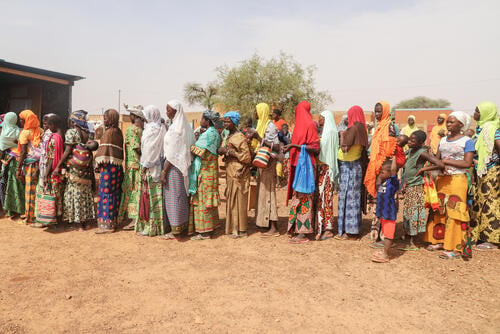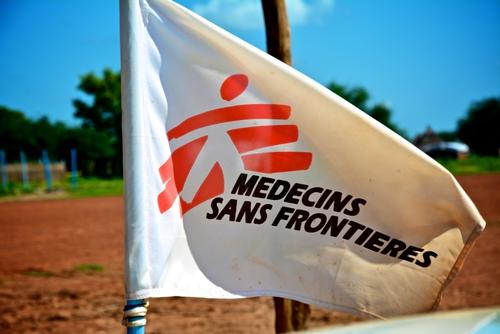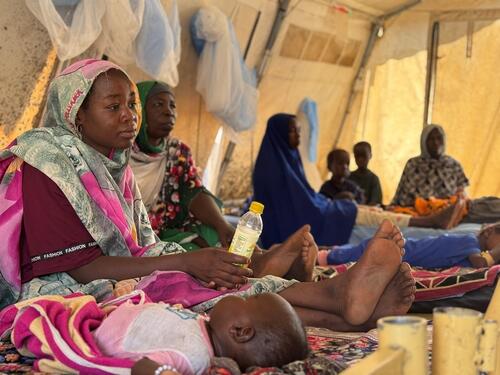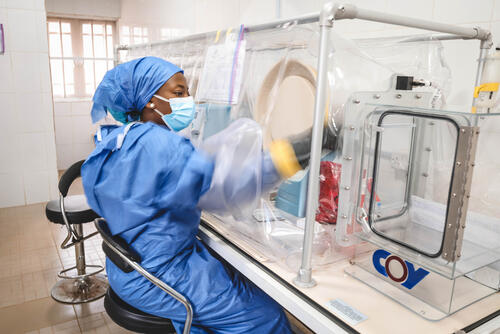Burkina Faso is experiencing an unprecedented humanitarian crisis that has seen almost two million people flee violence perpetrated by jihadist groupsOCHA, 31 March 2023. The northern town of Djibo has now been under blockade by non-state armed groups for over a year and remains largely cut off from food and aid.
The movement of people is restricted and access to basic services has been severely affected, leaving people to survive with little food, water, electricity, and limited means of communication.
The ongoing clashes between the Burkinabe defence and security forces and non-state armed groups, on the outskirts of Djibo, have resulted in hundreds of thousands of people seeking refuge in the town. Of the 300,000 inhabitants, almost 270,000According to the National Council for Emergency Relief and Rehabilitation: CONASUR are displaced, half of whom are children, living in camps or with host families.
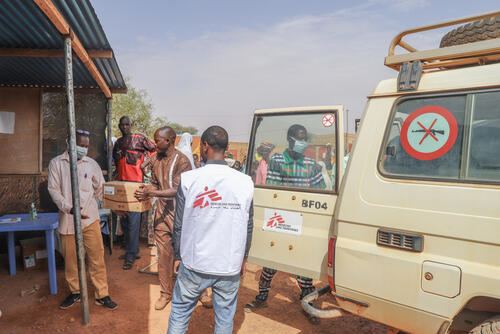
Caught in the conflict, people’s living conditions are deteriorating rapidly and the community is surviving by means of humanitarian assistance. Unable even to find salt, resources are so scarce that for long periods of time, inhabitants have resorted to eating leaves.
“I had nothing left for my children to eat,” says Safi, a 30 year-old displaced mother of five. Safi left her village of Yalanga, 100 km from Djibo, with her entire family. Her husband was killed on the way by armed groups. Safi receives distributions from the World Food Programme while she looks for small household jobs to survive.
“It's getting a little bit better these days,” she says, after a convoy of food and necessities finally managed to reach Djibo, under armed escort, four months after the last supplies reached the town. The improvement is notable, even if the combined effects of the food and security crisis remain critical.
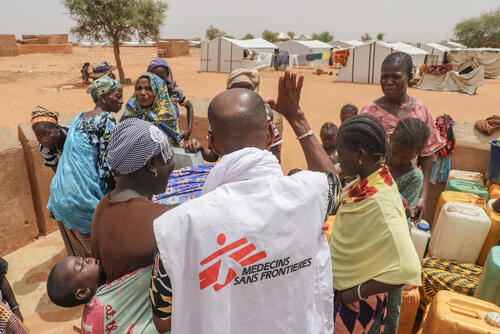
Nutritional crisis
The difficulties in accessing Djibo have led to an alarming food and nutrition crisis, the extent of which is difficult to measure. With insufficient information on the nutritional status of the population, humanitarian organisations have struggled to adapt.
Since the first warnings in October 2022, several organisations have mobilised, but aid is still largely insufficient. Nutritional activities implemented in recent weeks are responding to the needs of malnourished children, but the lack of food for the coming months remains deeply concerning.
On 8 and 9 April, Medecins Sans Frontieres (MSF) teams distributed 57 tonnes of BP-5 biscuits to 12,456 children aged between six months and five years, which is equivalent to a month's worth of food. BP-5 biscuits are used as a nutritional supplement to prevent malnutrition in children (a fortified food with high energy value based on cereals: cooked wheat flour, fat, vegetable oil, sugar, soya protein, vitamins, and minerals). This distribution has temporarily met the immediate needs of a large proportion of people here.
In addition to what MSF is doing for the people of Djibo, we also have been supported. This situation has also had an impact on us and our families.Hamadoum Moussa, MSF health promotion supervisor
Access to healthcare is also heavily affected by the blockade: most medical staff have left, while difficulties in obtaining medicines have led to the closure of several facilities. Those that remain are operating with limited capacity to respond to an extremely dire situation. “We are living through great suffering,” says one community leader.
Responding to the immediate needs.
Since 2018, in collaboration with the Ministry of Health, MSF has been supporting Djibo medical centre with a surgical unit, two advanced health posts and three community health sites.
Patients and their families also receive three meals a day. The surgery and the emergency care unit are autonomous thanks to solar panels.
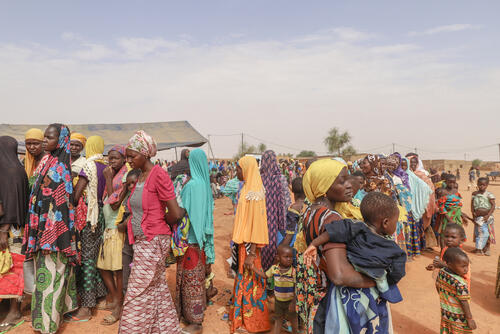
Our teams are also working on the rehabilitation of water points and building boreholes, facilitating access to drinking water for the inhabitants, whilst also reducing risks for women who no longer need to walk long distances to fetch water.
“In addition to what MSF is doing for the people of Djibo, we also have been supported. This situation has also had an impact on us and our families,” says Hamadoum Moussa, MSF health promotion supervisor.
Food supplies were flown in at the height of the blockade to ensure supply to MSF teams. Despite the extremely difficult context, solidarity and social cohesion prevail in the city as we continue to respond to the ever-growing needs of the community.



